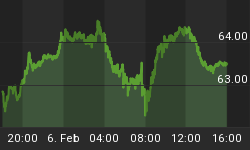Famous astrophysicist Neil deGrasse Tyson and Goldman Sachs share a common belief: The next trillion-dollar industry will be in the mining sector—in outer space.
As Neil deGrasse Tyson puts it: "The first trillionaire there will ever be is the person who exploits the natural resources on asteroids. There's this vast universe of limitless energy and limitless resources. I look at wars fought over access to resources. That could be a thing of the past, once space becomes our backyard."
While the renowned astrophysicist sees the potential for peace, Goldman Sachs sees the radical arrival of a trillion-dollar mining industry in the 21st Century.
It may sound like a long-term gamble, but Goldman has been eyeing improvements in technology and the trends toward lowers costs for manufacturing spacecraft.
A year ago, Goldman noted in a 98-page report: "While the psychological barrier to mining asteroids is high, the actual financial and technological barriers are far lower. Prospecting probes can likely be built for tens of millions of dollars each and Caltech has suggested an asteroid-grabbing spacecraft could cost $2.6bn.”
So, science fiction is becoming the narrative of reality, and radical opinions are starting to seem rather sober.
All the more because the whole idea is being given a major boost in Luxembourg of all places. Related: Nearly One-Third Of U.S. Lottery Winners Declare Bankruptcy
Asteroid mining is being led by private sector interests that are dead set on making money in outer space.
Two of the leading companies formed with this in mind are California-based Deep Space Industries and Washington-based Planetary Resources. Both have been operating for several years, and both plan on profiting from asteroid mining.
But the tiny European country of Luxembourg is hoping to become the hub of cosmic mining—a tax haven banking center-turned-asteroid-exploiter. So it’s no mystery why Deep Space Industries, for instance, has offices both in Luxembourg as well and a partnership with the government of Luxembourg.
Luxembourg is home to a few communication satellite companies and has a similar asteroid mining law to the U.S. law, which makes the small nation an attractive alternative to the U.S. market. This European country sees massive opportunity and plans to be way ahead of the game.
"Our goal is to put into place an overall framework for the exploration and commercial use of resources from 'celestial bodies' such as asteroids, or from the moon," said Etienne Schneider, Luxembourg's Deputy Prime Minister and Minister of the Economy.
Once a famous steel producer, an experienced commercial satellite hub, and now famed for private banking and low-tax base, Luxembourg’s mining and financial backgrounds make it a prime candidate for the race to cosmic natural resources.
The first European private satellite operator, Société Européenne des Satellites, was launched in 1985 and today it’s the second-biggest commercial satellite operator in the world.
Luxembourg started working on an asteroid mining bill since 2016 that came into force last year, giving companies ownership over whatever, they extract from celestial bodies. This law is very similar to Obama's law signed in 2015, which also gives mining companies the right to keep their cosmic loot.
Both laws also take advantage of a loophole in the United Nation's Outer Space Treaty, which states that nations can't claim and occupy the moon and other celestial bodies—but it doesn’t say anything about what’s extracted from them.
There won’t be any ownership of asteroids, either.
The only difference between these laws is that in the case of Luxembourg, companies don’t have to be based in the country in order to enjoy protection. An office will suffice.
Luxembourg established the Space Resources initiative in 2016 and earmarked $223 million of its national space budget to provide early-stage funding and grants to companies working toward space mining.
Related: Will Blockchain Stocks Ever Bounce Back?
Deep Space Industries and Planetary Resources are already working closely with Luxembourg's government, which contributed an undisclosed amount of R&D funding to Deep Space Industries and struck a deal with Planetary Resources in 2016 for a $28 million investment in exchange for undisclosed equity in the company.
While there may be limitless natural resources from asteroid mining, as deGrasse Tyson notes, the first commercial commodity is likely to be precious water.
It may be decades before anyone actually starts ‘fracking’ an asteroid and delivering new natural resources, but when it happens, Luxembourg will have secured its place on the space map as a definitive hub.
By Michael Kern for Safehaven.com
More Top Reads From Safehaven.com:
















